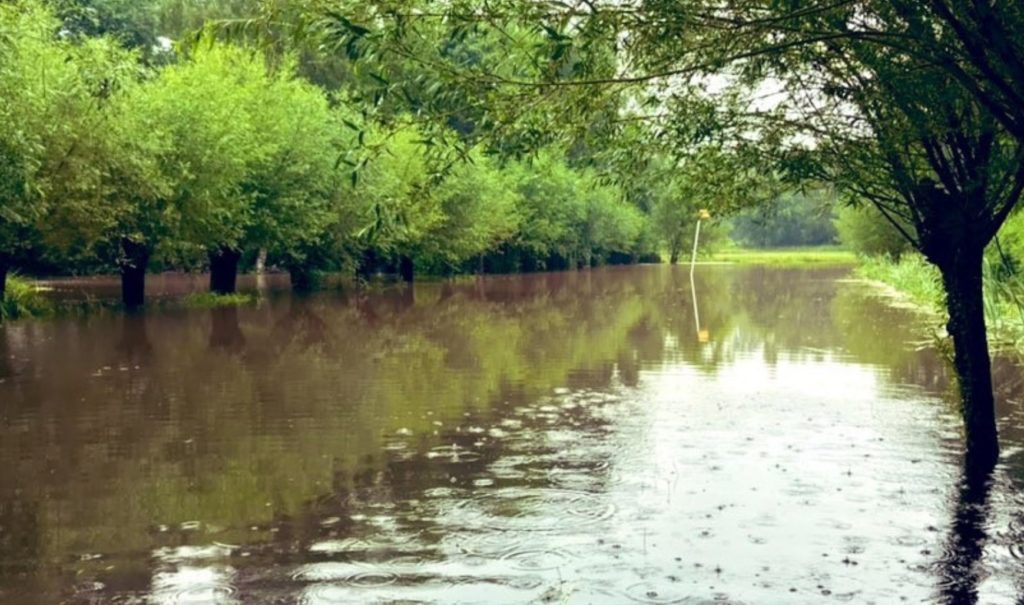Agriculture is facing heavy consequences from the flooding and extreme weather Belgium experienced over the last couple of weeks.
After fatal floods left entire fields under water across the country less than two weeks ago, heavy rainfall this past weekend worsened the situation.
“At the moment, we cannot yet estimate how many hectares of vegetables have been lost, but the damage is considerable,” said Christophe Vermeulen, acting secretary of Vegebe, the professional association for vegetable processing and trade in industrial vegetables.
Wine growers - many of whom escaped the first round of flooding - also fear a lean grape year.
Even if farms and vineyards didn’t experience material damage to structures or drowned crops, the multiple effects of heavy rainfall (including the washing away of fertilizer) can be devastating to crops.
In vegetable cultivation, peas, broad beans and French beans are particularly hard hit, according to the Flemish information centre for agriculture and horticulture (VILT).
“The processing industry is planning measures to compensate for the losses,” said Vermeulen.
The extreme weather conditions in the east and south-east of Belgium have a heavy impact on sowing and harvesting vegetables.
“Due to the very heavy rainfall, up to 200 litres per square metre, entire hectares have been washed away. Other areas are so wet that it is impossible to harvest. This problem is seen in peas. These parcels are also lost,” Vermeulen said.
VILT says the sector already has to contend with a combination of negative factors: the spring was very wet, so the sowing schedule of the beans had to be adjusted; due to the considerable delay in sowing, it’s feared that there will be less yield from what was sown late; the loss of seed disinfection and crop protection will also have a serious impact on the harvest and the yield.
“In the coming weeks, we will monitor the situation very closely and map out how much of the harvest has been lost. However, for the regions of Limburg and the south-east of Wallonia, it is already clear that things are not looking good,” Vermeulen said.
For viticulture, the prognosis isn’t much better.
Entire hectares of vineyards have been washed away in the floods. Other parts are so wet that it’s impossible to harvest.
This past weekend’s weather certainly didn’t help.
Still, compared to their German and Dutch colleagues, the damage for the Flemish wine growers (whose sector has been rapidly expanding in recent years) seems to be modest.
“We’ve had a lot of rain, but because our vineyards are located on a flank, they were not flooded,” Jeannette van der Steen told the newspaper De Tijd.
Van der Steen runs the La Bonne Baronne wine estate on the banks of the Meuse and despite the lack of water damage, the abundant rain has nevertheless been a setback, causing increased pest pressure and a risk of fungi.
“The high humidity affects both the young grapes and the new leaves, via the roots, so much of the harvest is lost,” van der Steen explained.
“Grapes do not like wet feet. That causes mildew, white disease or grey rot.”
Wine growers are already preparing for a weak year due to the heavy rainfall, which causes complete saturation of the soil.
“Moist soils lead to production losses,” said Ghislain Houben, a wine grower from Borgloon.
“This means that 2021 already cannot be a good vintage, especially if we look at the grey weather forecast for the coming week.”

